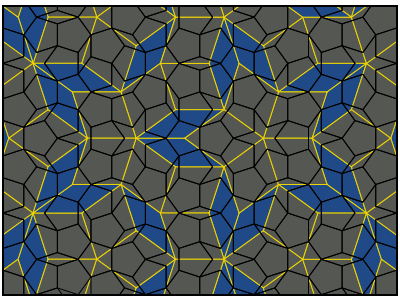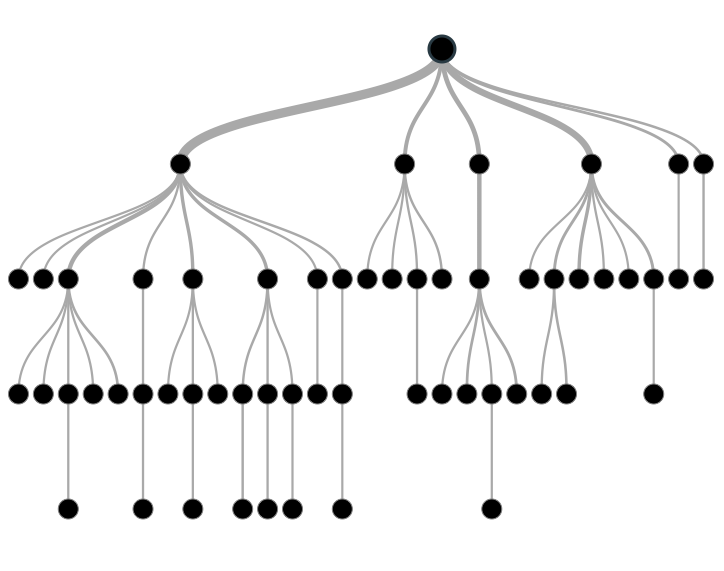Somewhere along the way, I came to believe that the word causal came from the word because. Because there’s a cause contained in the word because. The word is almost like a commandment. Be the cause. I don’t think that’s really true. It’s just a silly association. The word because seems to be an element of a persuasive argument. How about a little thought experiment? Consider the assessment: “Peaches are gross.” Okay, you may have one or many positions on this controversial subject: You agree because your experience matches that statement, you disagree because your experience does not match that statement, you may not agree nor disagree because it’s possible that some peaches are gross and some other peaches are[…]
Author: Christopher Berry
Some communities make decisions about what is knowledge and what is not. You’re probably a member of some of those communities. Maybe you make up your own mind about what is knowledge and what is not entirely on your own? Maybe you’re not fully aware of how much you are influenced by the communities you identify with? Think about what you experienced during your formal education. In order to receive recognition (a grade, a credit, a certificate), you needed to demonstrate that you were able to create evidence that you accepted the knowledge you were told. You didn’t always need to agree that the knowledge that you had to repeat was the truth. You just needed to exhibit behaviour that[…]
Maybe you should read Thomas Kuhn’s The Structure of Scientific Revolutions. Maybe you shouldn’t. Here’s a little bit of information to make up your own mind. When I use the word paradigm, I mean it in the Kuhnian sense. I don’t use it as a hyperbole or superlative. I don’t look at a new ice cream brand extension and breathlessly declare that it’s a paradigm shift in desert delivery. Paradigm shouldn’t be a buzzword. Kuhn defined a scientific paradigm as a set of evidence, experiments, achievements and observations that are universally recognized, that provide a set of problems and solutions that are worthy of a communities’ focus. Communities are very particular about what they consider to be knowledge and what[…]
Walter Gretzky is credited with the quote: “Go to where the puck is going, not where it has been.” Walter used socratic questioning to teach his son, Wayne, hockey strategy. Here’s the full context from Wayne’s perspective: Him: “Where do you skate?” Me: “To where the puck is going, not where it’s been.” Him: “Where’s the last place a guy looks before he passes it?” Me: “The guy he’s passing to.” Him: “Which means…” Me: “Get over there and intercept it.” Him: “If you get cut off, what are you gonna do?” Me: “Peel.” Him: “Which way?” Me: “Away from the guy, not towards him.” (Gretzy, Reilly, Gretzky: An Autobiography p. 88) Puck On To win a game of ice[…]
Everybody experienced 2020 in a different way. I offer one perspective. I limped into January from 2019. It was a tough year in that it was tougher than 2018 and 2017. Tough for a few reasons. It was a stretch year. Technology was causing discomfort but not change. Social systems struggled. It was a stretch year for leadership development. After testing dozens of heuristics (rules of thumb), I was in the process of adopting a half dozen. They’d serve me well in 2020. January January was to be a month of consolidating the learning and incorporating the learnings deep into the heart and mind. I chose to dream in Hawaii. And it worked. I experienced sleep that was deep and[…]
2020 hasn’t been easy. Figures from the US Census Household Pulse Survey can be used to tell a story of anxiety, hunger, depression, desperation and hopelessness. Millions are hurting. 2020 is hitting the poor, the young, and those who are low to mid-skilled the hardest. 2021 isn’t looking easy. Vaccines will take time to rollout. The recovery depends on collective health security. Health security causes confidence, confidence causes increased risk tolerance, increased risk tolerance leads to investment, and investment stimulates growth in private sector productivity, labour market demand, and opportunity. It will take time for each part of the chain to develop. It all lags. A return to the previous trend line doesn’t address the underlining cause of wage polarization.[…]
If you need a tool to break down complex scenarios, this approach, a tool using decision forests, might be right for you. By the end of this post, you’ll be able to use the gentler, forward, variant of dancing in a decision forest. This is a post is intended for a curious audience. Decision You’re an extraordinary assembly of chemical gradients. At any given moment you have the opportunity to make millions of decisions. The crudest segmentation, the roughest way I can impose order on all of this complexity is divide them up in two types of decisions: to act, or to not act. Further, when you decide to act, there are two broad types of actions: explore and exploit.[…]
The planning fallacy is the tendency of people to underestimate how long they’ll take to complete a task or project. Why are we struggle at estimation? Kahneman and Tversky (1979) thought that it had to do with information input. When people estimate, they tend to consider only factors related to the project that’s in front of them, instead of considering factors from prior experience. The approach of only thinking ahead doesn’t have the benefit of considering more factors and considerations. It may also feel a lot better to think ahead than to recall the painful trauma of failed projects of the past. And yet, the past can be a fantastic source of factors. I’ve had software projects get delayed by[…]
Software agility is not business agility (Klaus, 2018). If that sounds true to you, then the rest of this post should be a fun read. If it is not, this may be challenging. It could still be a fun read. Software Agility The collection of knowledge called Agile Methods, as applied to developing valuable software, is deep and broad. Much of the variance both within communities and across communities is caused by the ambiguities in their experiences and where they’re at in their personal and leadership development. There are good reasons for the distinctions among the different forms of Agile. The Universe is whatever you say it is, so just say. Business, Busyness, Problems Have you ever participated in a[…]
Marty Cagan lists four big risks in product development: value risk (will they buy it?) usability risk (can they figure out how to use it?) feasibility risk (can engineers build it?) business viability risk (can the business work with it?) Cagan’s framework is a great read. I’d like to build on and acknowledge Cagan’s ideas here. The intimate relationship Canadians have with risk Water is to fish as risk is to Canadians. If you aren’t from here, maybe you’d be in a better position to see it. There’s a skill, called inversion, that I think Canadians are pretty good at. You imagine the worst that can happen, and then you write plans to avoid those nightmare from coming true. It’s a good skill. I[…]






